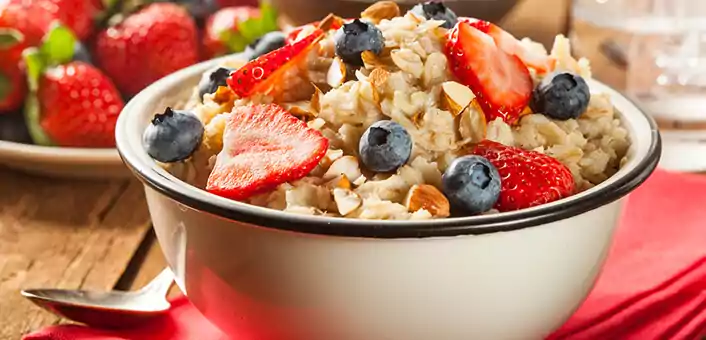
Constipation
Fiber For Constipation: Does It Help Always?
Aug 28, 2017A common advice given to anyone suffering from constipation is to “eat more fiber.” But is fiber good for constipation?
Fiber adds bulk to the food and stool formation. So, in general, it is considered as a cure for constipation. However, the role of dietary fiber in treating constipation may be overrated.
What’s The Difference Between Soluble And Insoluble Fiber?
There are two types of fibers we consume; soluble and insoluble. You will find soluble fibers in foods such as oatmeal, nuts, beans, apples, and blueberries. And good sources of insoluble fibers are foods like whole grains, bran, brown rice, root vegetables and green leafy vegetables. A study found that soluble fibers dissolve in water forming viscous gels. These gels bypass the small intestine and can be easily fermented. They add bulk to the stool and help prevent constipation. On the other hand, insoluble fibers do not dissolve in the gastrointestinal tract. They simply stay intact while moving through the digestive system. They add bulk to the stool but not viscosity. Sometimes insoluble fiber can aggravate the symptoms of irritable bowel syndrome.
So, Who Benefits from Avoiding/ Reducing Fiber For Constipation?
If you have:
-
Idiopathic Constipation
Idiopathic constipation is caused by unknown reasons. A study found that this type of constipation and its symptoms can be reduced by lowering/stopping the intake of dietary fiber. Lowering the intake of dietary fiber consumption resulted in reduced bloating and strain to pass stools.
-
IBS (Irritable Bowel Syndrome)
Irritable Bowel Syndrome (IBS) is a disorder in which people can have loose stools, constipation or a combination of both. Excess dietary fiber is associated with an increased feeling of gas, bloating and abdominal discomfort. Following a diet with low dietary fibers worked well on patients suffering from irritable bowel syndrome. The volume and bulk of the stool reduced and passage became easier with a change in diet.
This study mentions that in people suffering from IBS, the role of dietary fiber in constipation is comparable to that of cars in a traffic congestion. Just like adding more cars to a traffic congestion can aggravate it, adding more fiber to a body already overloaded with stool makes passage difficult. It is important to lower the stool bulk and volume by reducing dietary fiber consumption.
-
Any Kind Of Inflammatory Bowel Disease
It is advisable not consume fiber if you have any kind of inflammatory bowel disease such as leaky gut, colitis etc. If would be wiser to try magnesium first. Magnesium can help all muscles relax, including those in the gut. By helping stool move more smoothly, it may help you get greater relief from constipation.
Remember: Adding fiber to the diet was advice given traditionally to people who ate too many processed carbs and not enough plant fibers. It is not advice that is suitable to those who have other problems that need addressing before they return to a balanced diet with sufficient fiber in it.
Also, if you are one of those people who does not have the specific health conditions mentioned in this article and want to add fiber to your diet, make it a point to drink plenty of water to ensure that the fiber can do its job smoothly.
References:
Effects of Dietary Fiber and Its Components on Metabolic Health https://doi.org/10.3390/nu2121266
Stopping or reducing dietary fiber intake reduces constipation and its associated symptoms. World Journal of Gastroenterology https://doi.org/10.3748/wjg.v18.i33.4593




